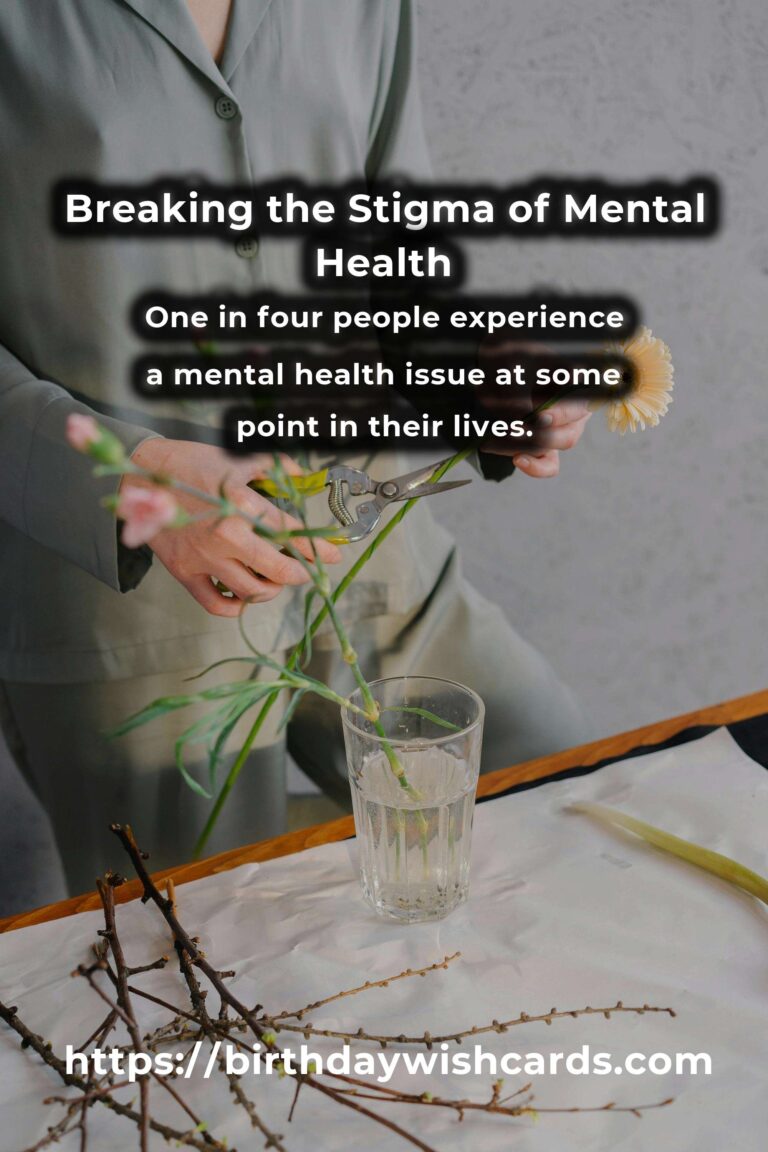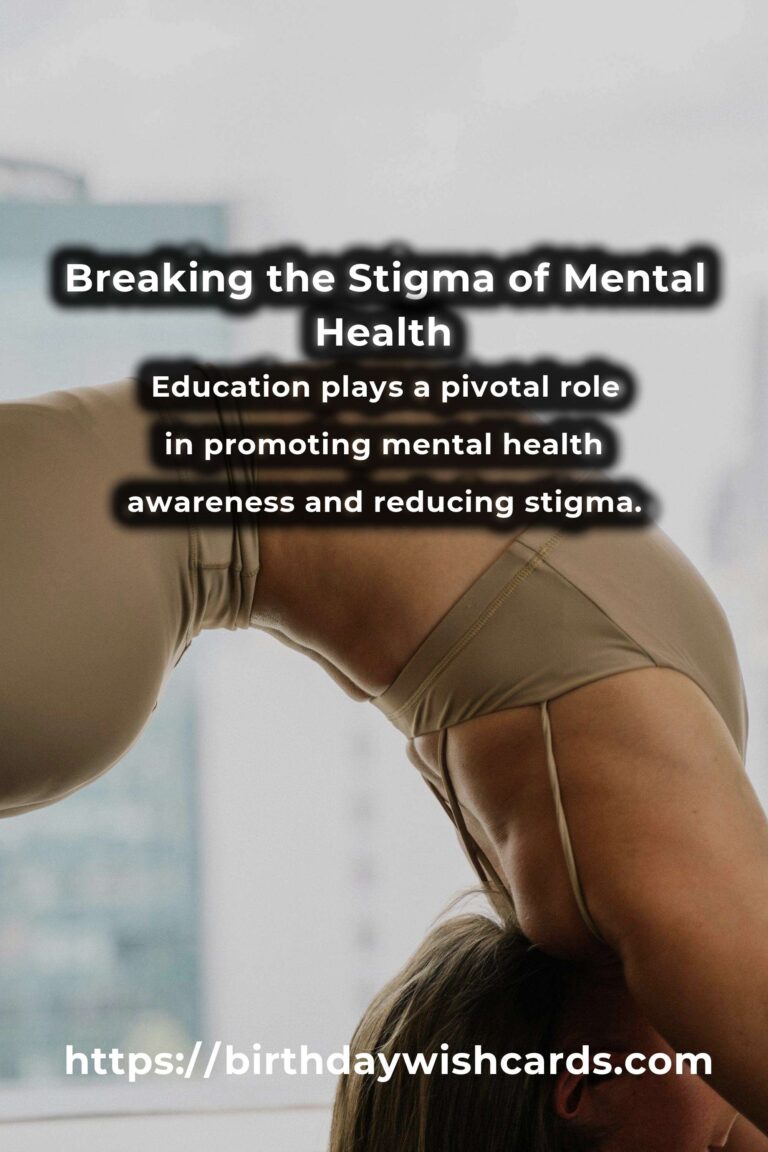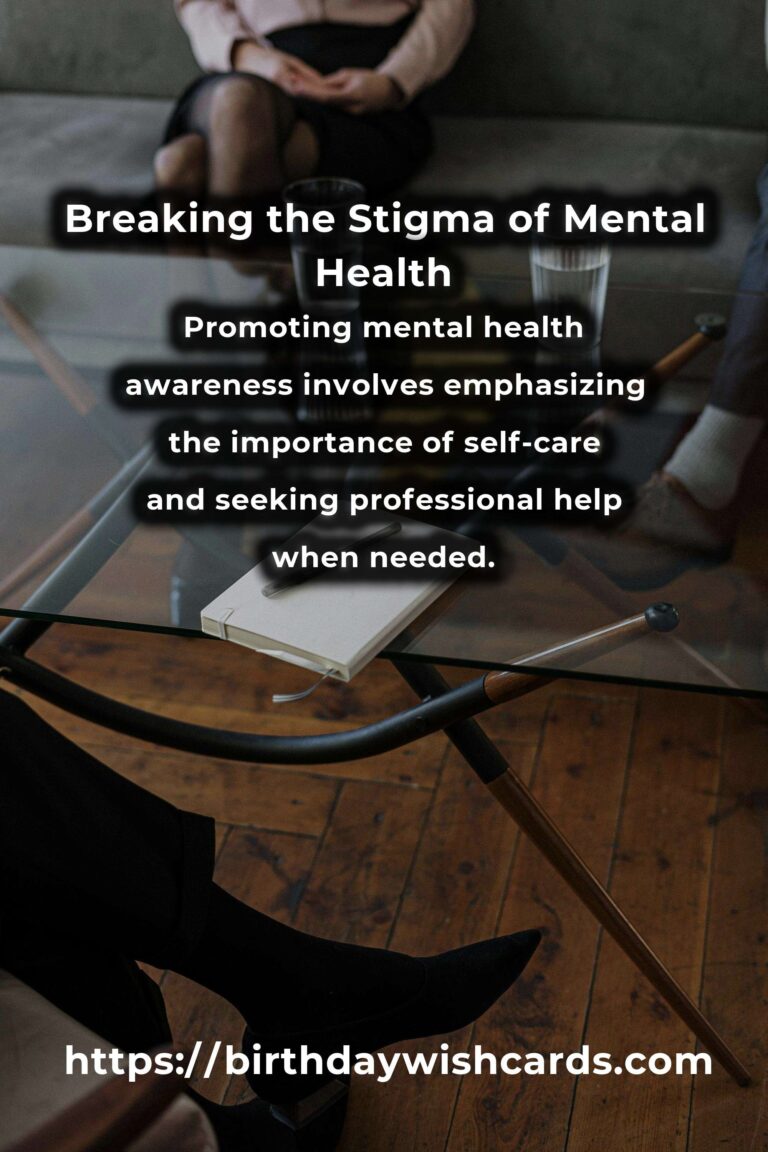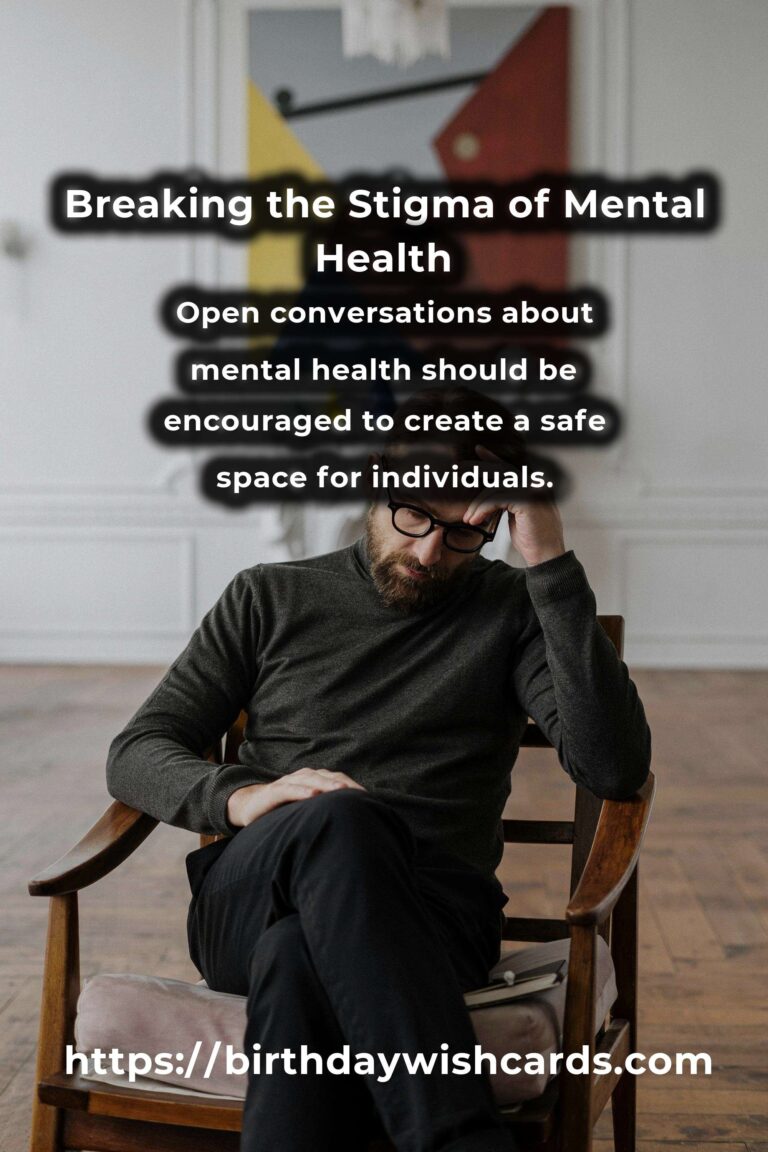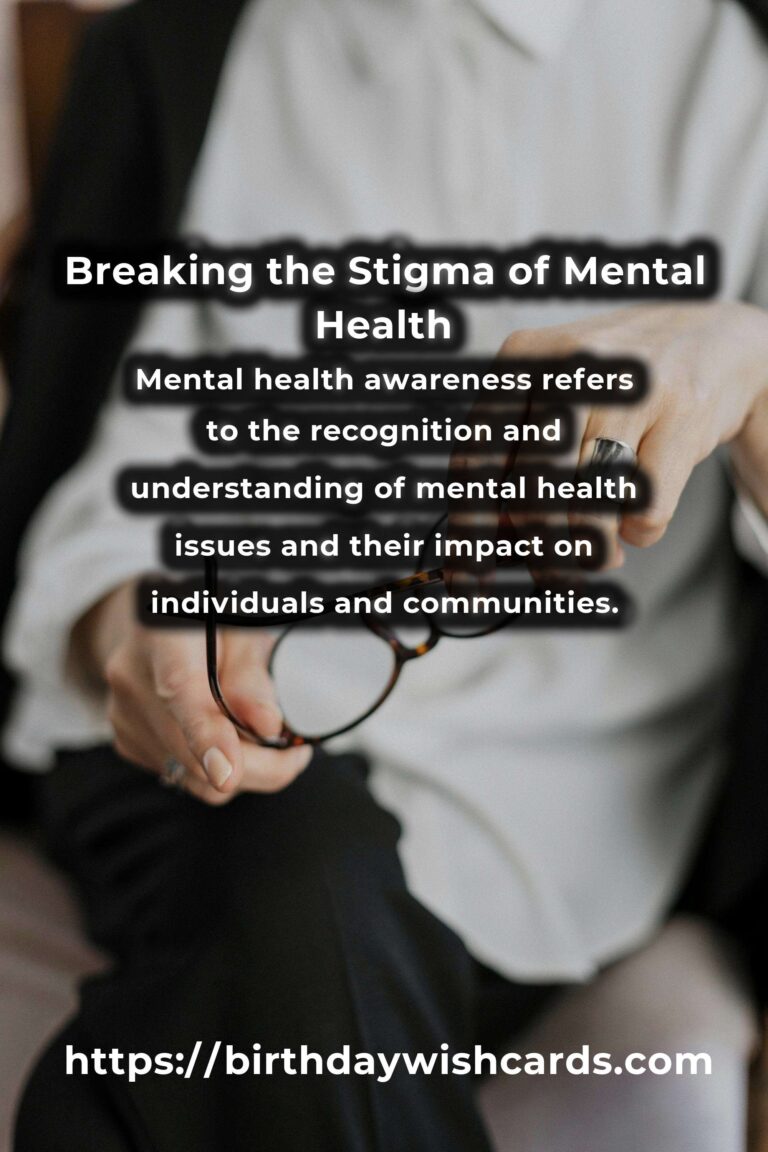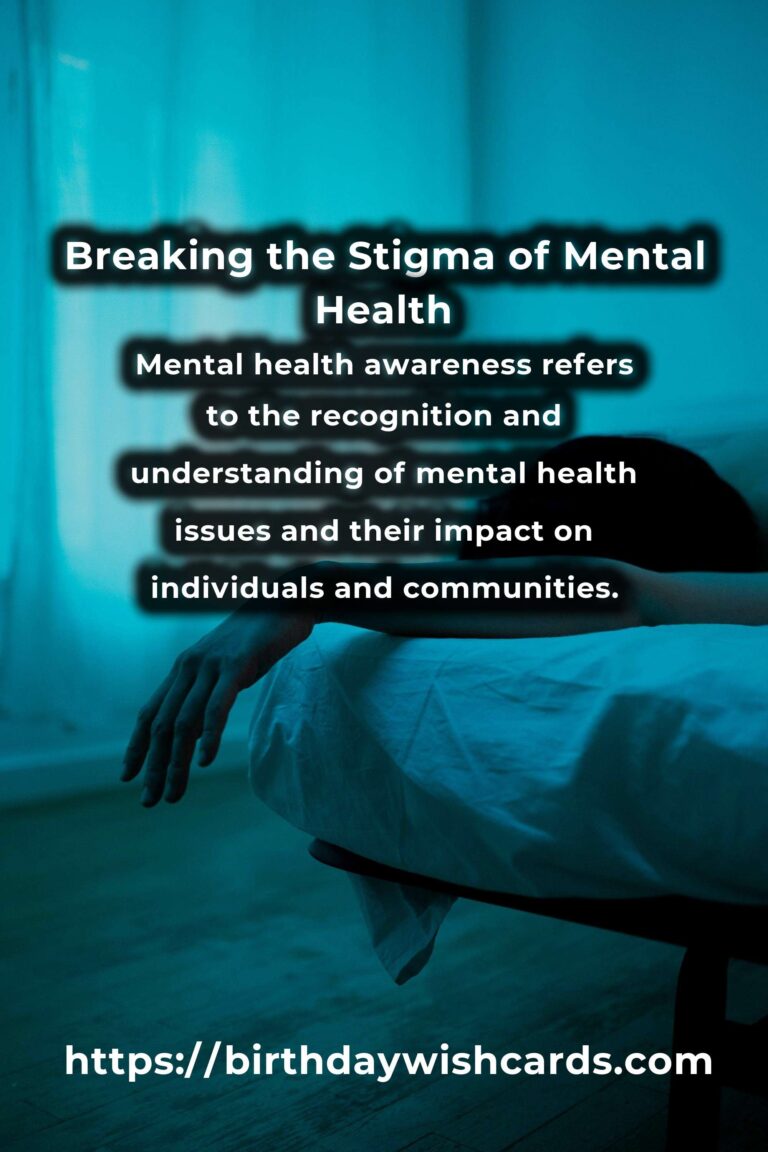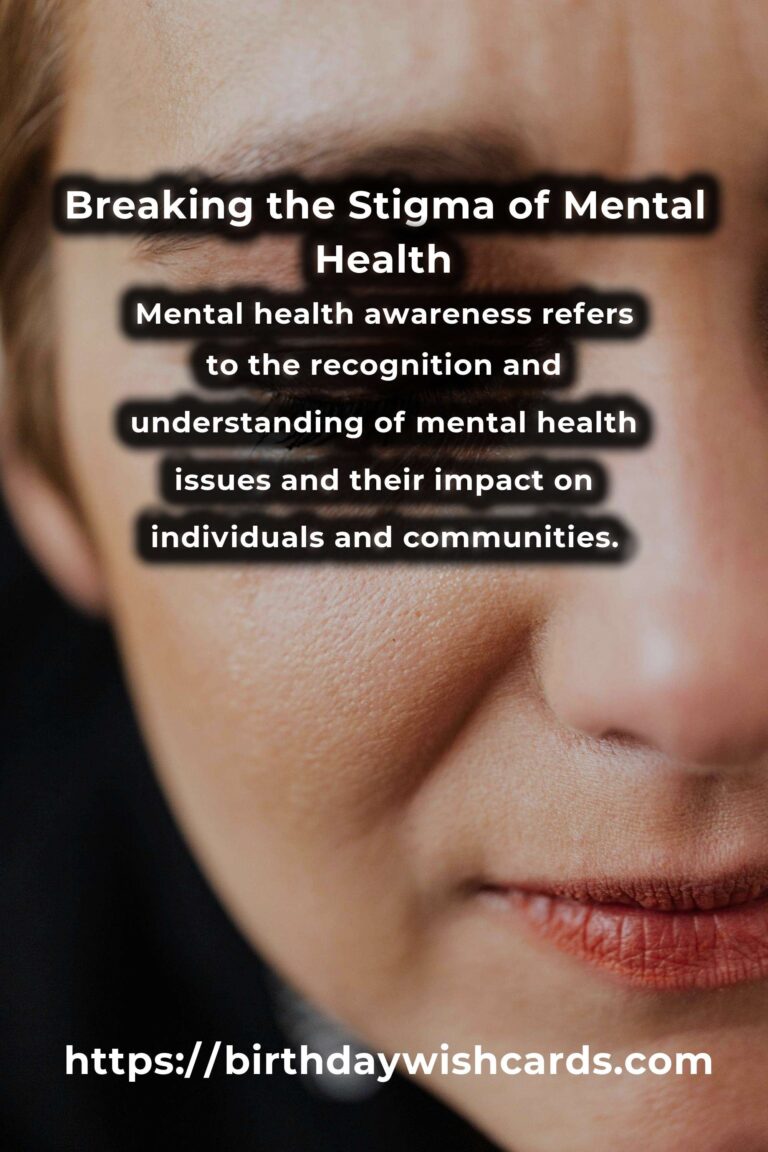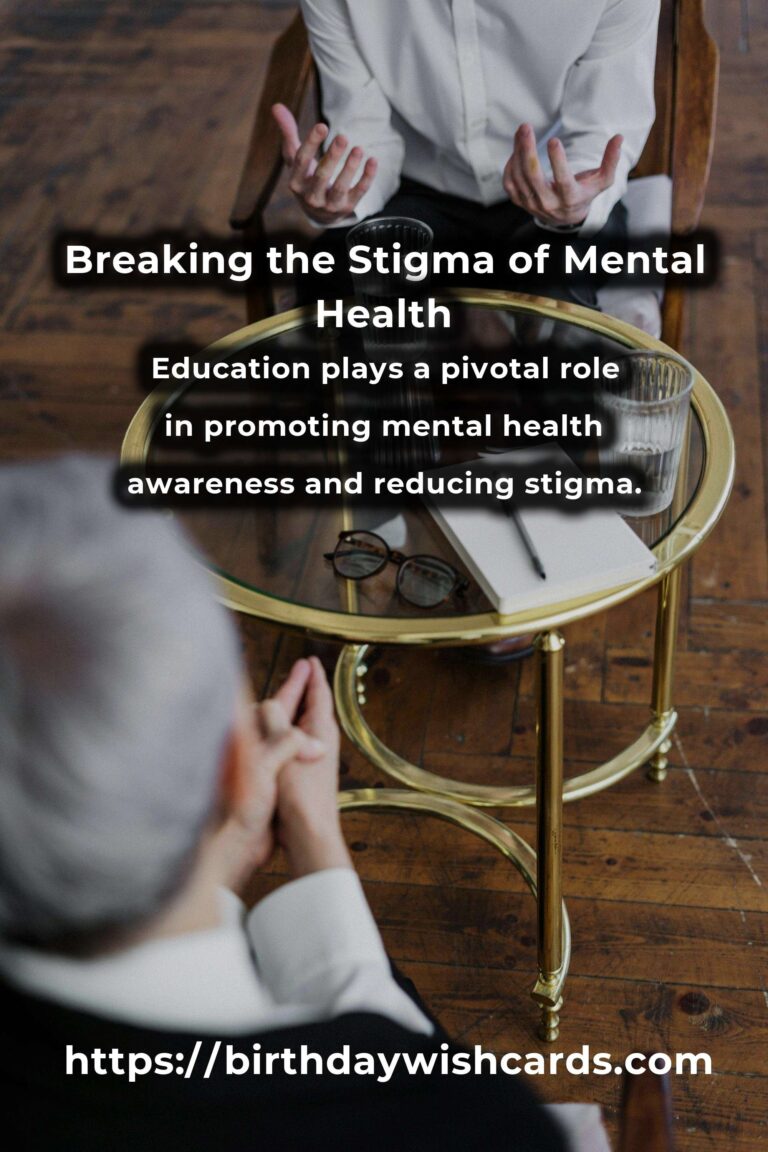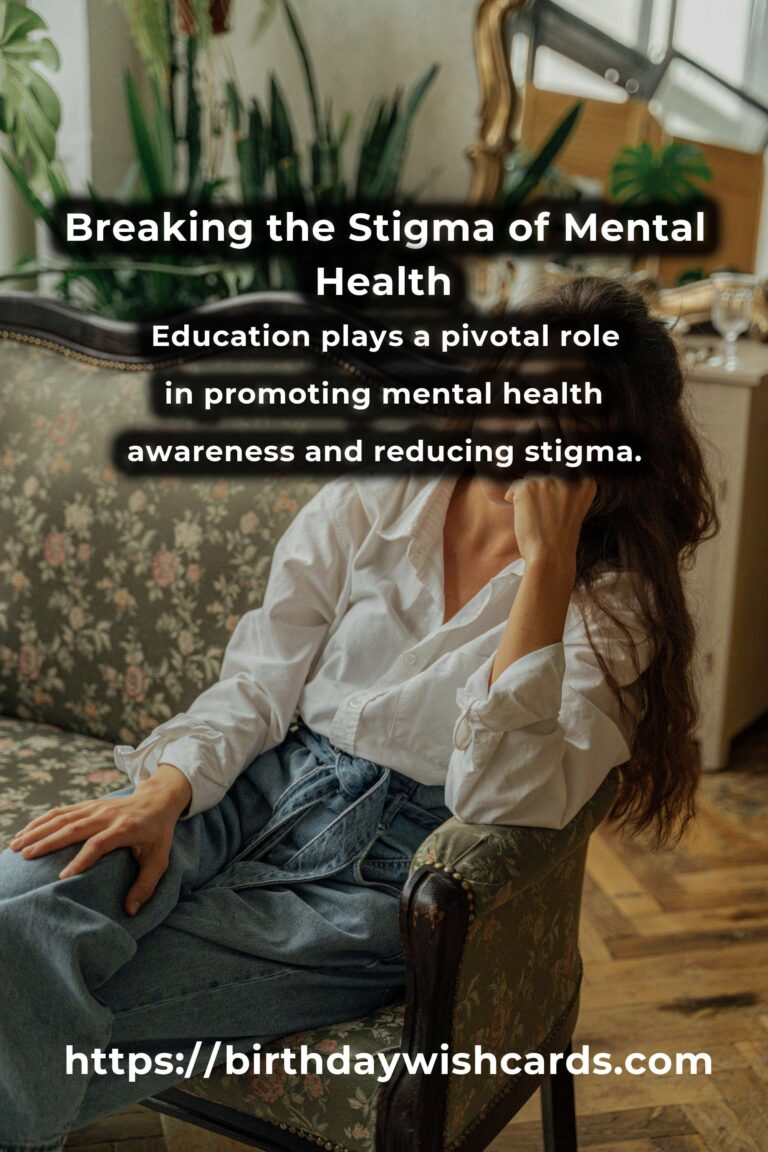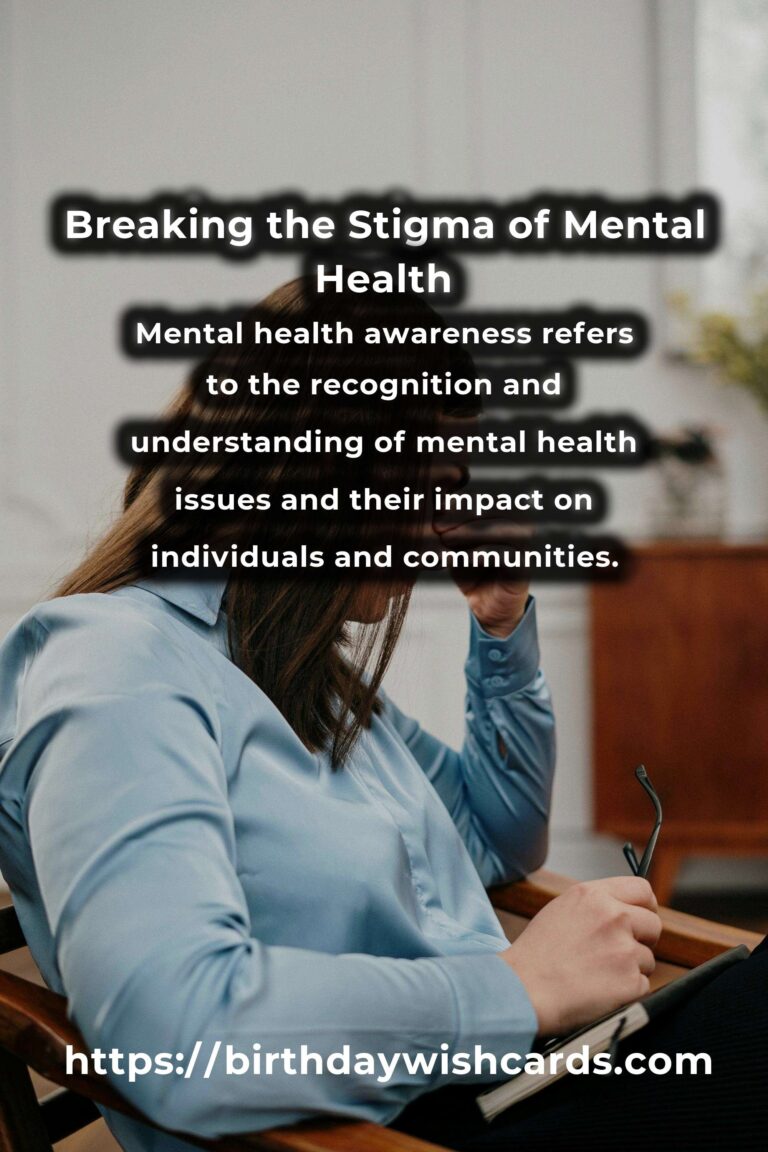
Mental health awareness is a crucial topic that has gained significant attention in recent years. As society becomes more conscious of the importance of mental well-being, it is essential to demystify mental health awareness and understand its significance in our lives. This article will delve into the importance of mental health awareness, the common misconceptions surrounding it, and how we can collectively work towards breaking the stigma.
Understanding Mental Health Awareness
Mental health awareness refers to the recognition and understanding of mental health issues and their impact on individuals and communities. It involves educating people about mental health conditions, promoting mental well-being, and encouraging individuals to seek help when needed. Awareness is the first step towards early intervention and prevention of mental health disorders, which can significantly improve the quality of life for those affected.
One of the key aspects of mental health awareness is acknowledging that mental health is just as important as physical health. The World Health Organization defines health as a state of complete physical, mental, and social well-being, not merely the absence of disease or infirmity. Therefore, mental health is an integral component of overall well-being, and understanding this connection is vital for fostering a healthier society.
Breaking Down Common Misconceptions
Despite increased awareness, several misconceptions about mental health persist. One common myth is that mental health issues are rare and affect only a small portion of the population. In reality, mental health conditions are widespread, with one in four people experiencing a mental health issue at some point in their lives. This misconception can lead to isolation and prevent individuals from seeking help.
Another prevalent misconception is that mental health problems are a sign of weakness or a personal failing. This belief contributes to the stigma surrounding mental health and discourages people from discussing their struggles openly. It is crucial to understand that mental health conditions can result from a combination of genetic, environmental, and psychological factors, and seeking help is a sign of strength, not weakness.
The Role of Education in Mental Health Awareness
Education plays a pivotal role in promoting mental health awareness and reducing stigma. By incorporating mental health education into school curriculums, we can equip young people with the knowledge and skills to recognize mental health issues and seek appropriate help. Additionally, community programs and workshops can provide valuable resources and support for individuals of all ages.
Public awareness campaigns are also instrumental in changing societal perceptions of mental health. Campaigns that highlight personal stories and experiences can humanize mental health issues and generate empathy and understanding. These efforts can help shift the narrative from judgment and discrimination to acceptance and support.
Practical Steps to Promote Mental Health Awareness
There are several practical steps individuals and communities can take to promote mental health awareness. First and foremost, open conversations about mental health should be encouraged. Talking openly about mental health can normalize the topic and create a safe space for individuals to share their experiences without fear of judgment.
Additionally, supporting mental health organizations and initiatives can make a significant impact. Volunteering, donating, or participating in mental health awareness events are effective ways to contribute to the cause. Moreover, advocating for policy changes that prioritize mental health services and funding can lead to systemic improvements in mental health care.
The Importance of Self-Care and Seeking Help
Promoting mental health awareness also involves emphasizing the importance of self-care and seeking professional help when needed. Self-care practices, such as regular exercise, mindfulness, and maintaining a balanced lifestyle, can enhance mental well-being and resilience. However, for those experiencing mental health issues, professional help from therapists, counselors, or psychiatrists is essential for effective management and recovery.
It is important to recognize that seeking help is a courageous step towards healing and that mental health professionals are equipped to provide the necessary support and guidance. Encouraging individuals to reach out for help can prevent the escalation of mental health problems and improve overall quality of life.
Conclusion
Demystifying mental health awareness is a vital step towards creating a supportive and understanding society. By breaking down misconceptions, promoting education, and encouraging open conversations, we can foster an environment where mental health is prioritized, and stigma is eradicated. Together, we can work towards a future where mental well-being is recognized as a fundamental component of overall health, and individuals feel empowered to seek the help they need.
Mental health awareness refers to the recognition and understanding of mental health issues and their impact on individuals and communities. One in four people experience a mental health issue at some point in their lives. Education plays a pivotal role in promoting mental health awareness and reducing stigma. Open conversations about mental health should be encouraged to create a safe space for individuals. Promoting mental health awareness involves emphasizing the importance of self-care and seeking professional help when needed.
#MentalHealthAwareness #BreakTheStigma #MentalWellbeing #MentalHealthEducation

